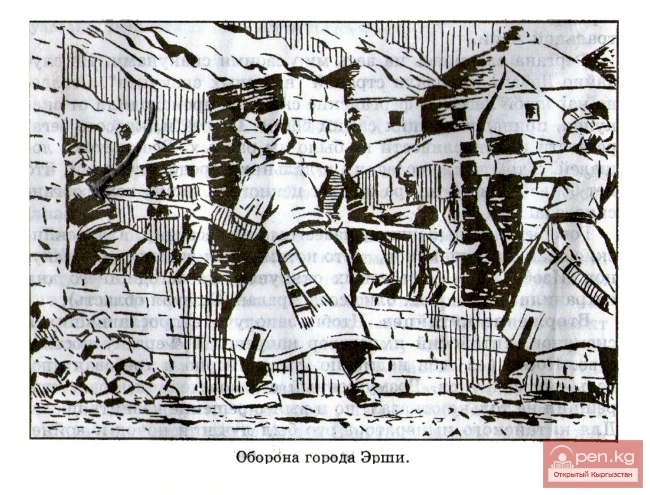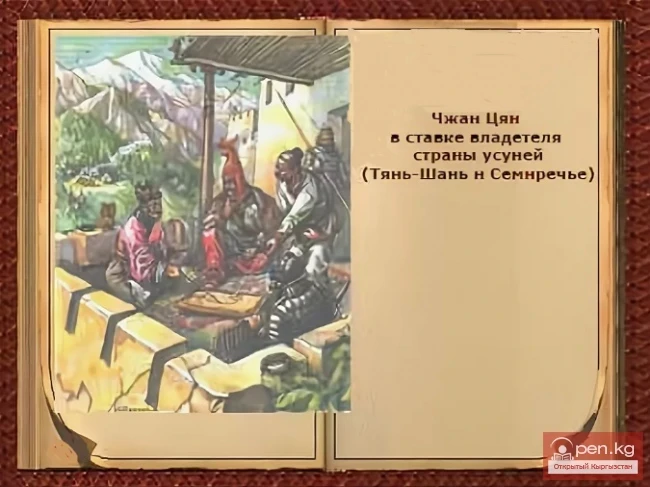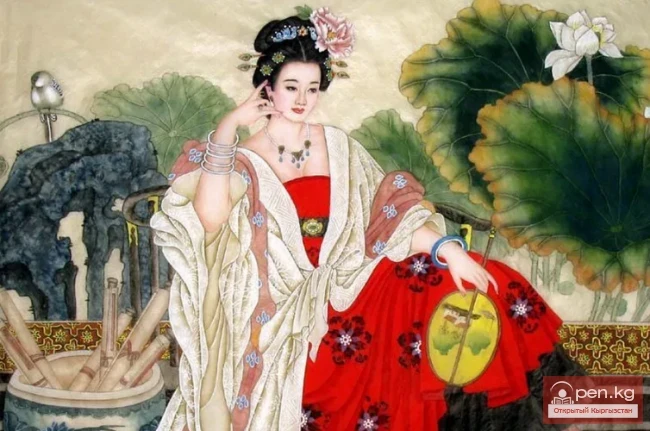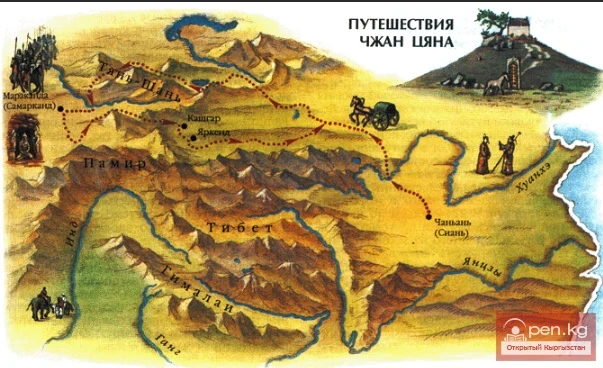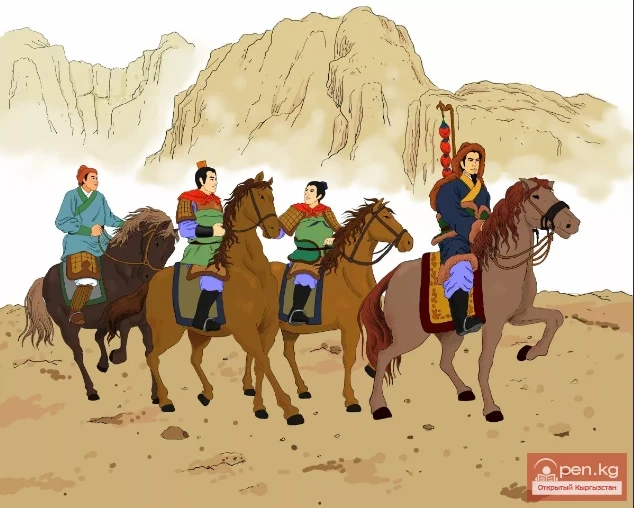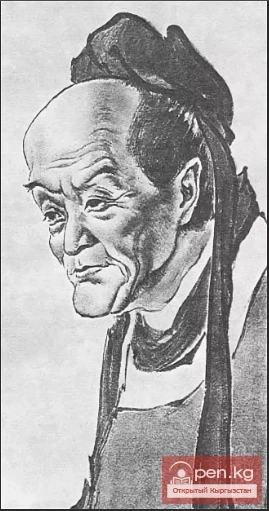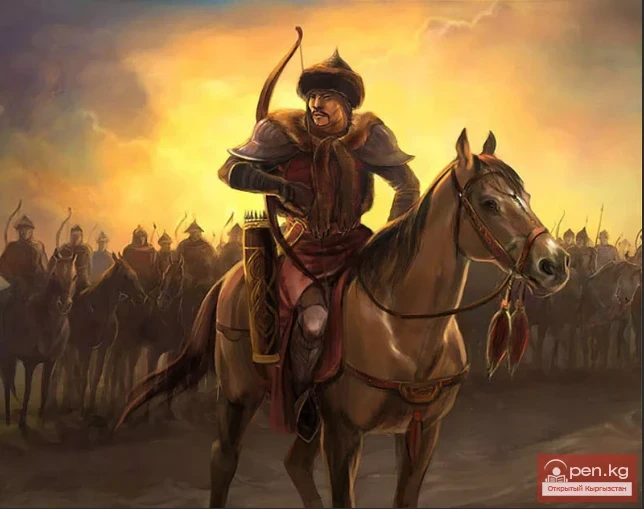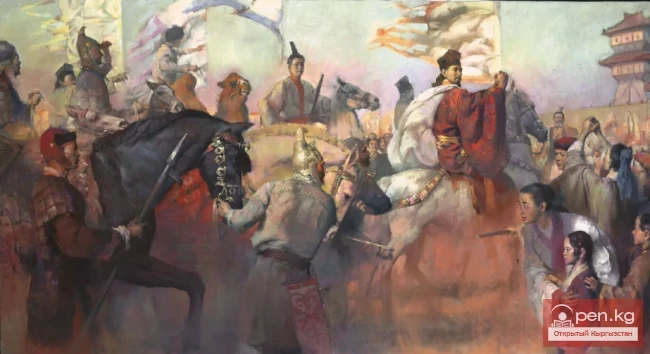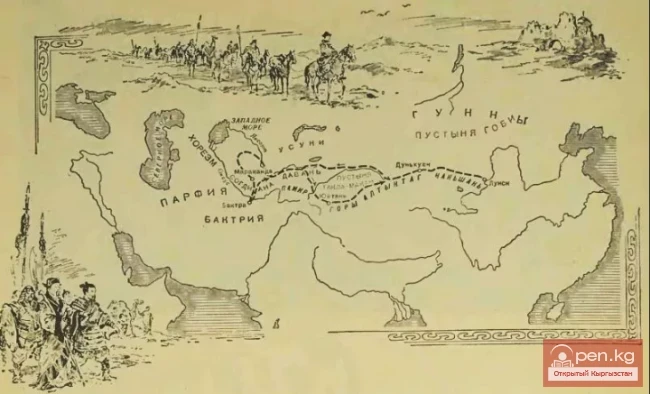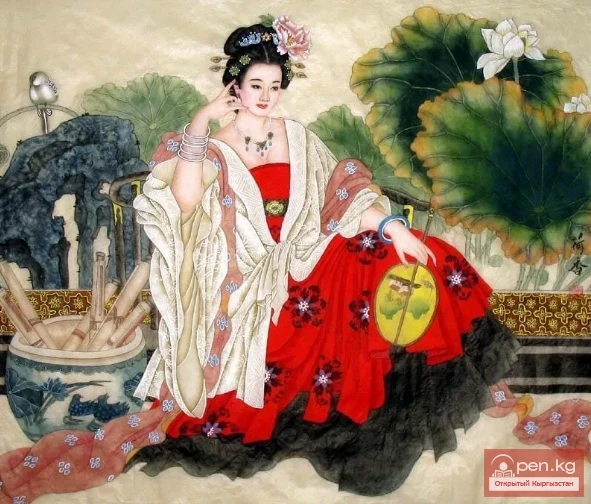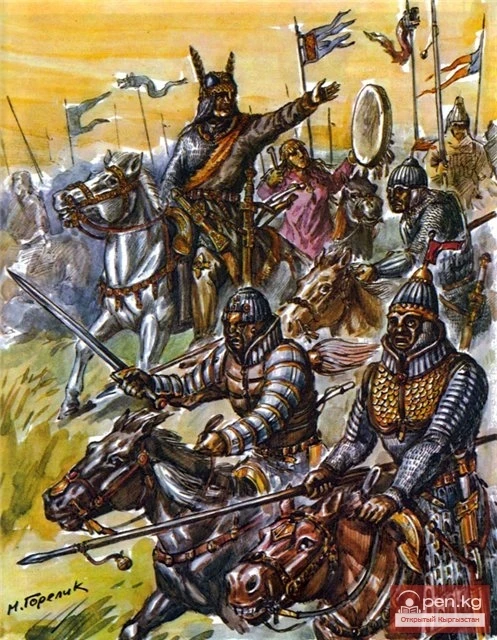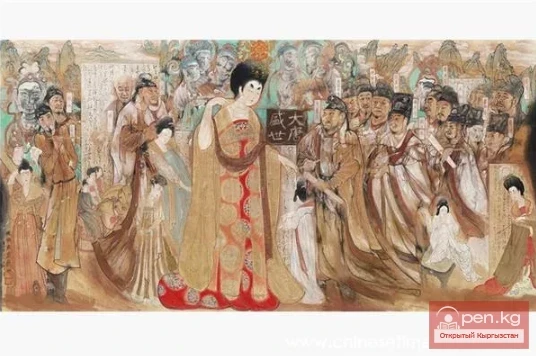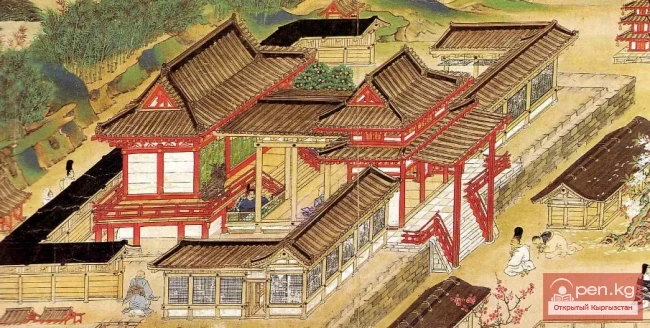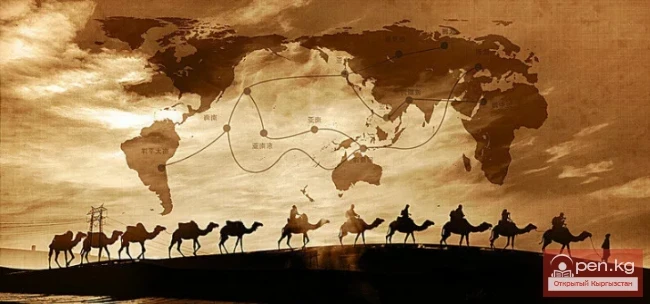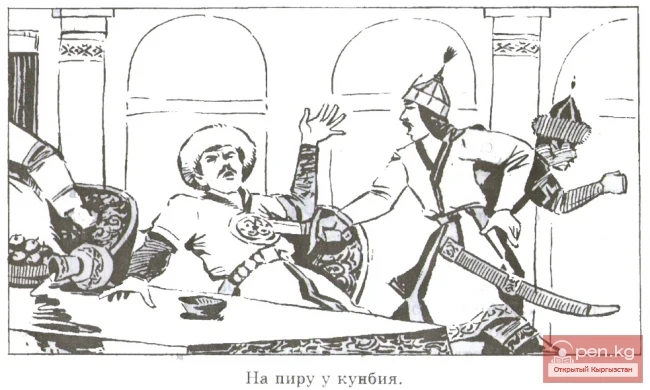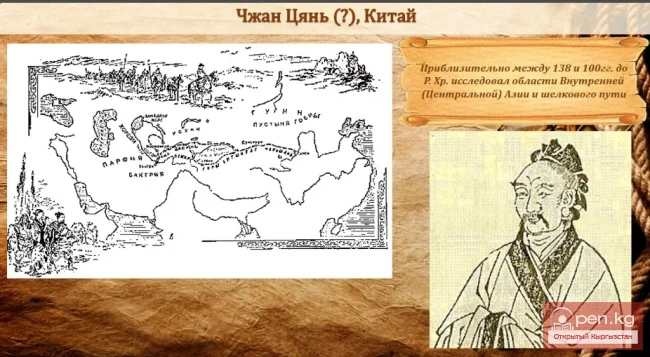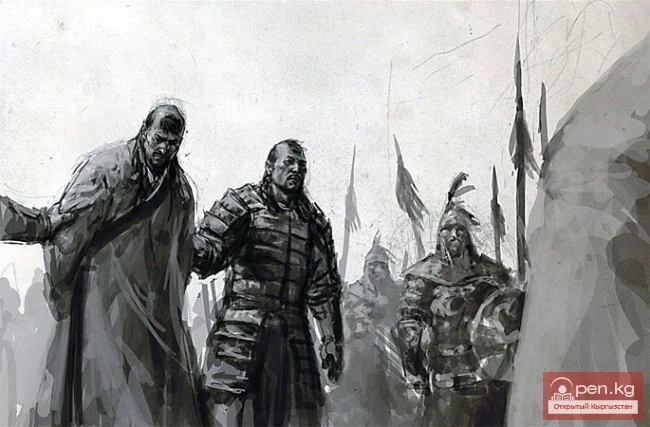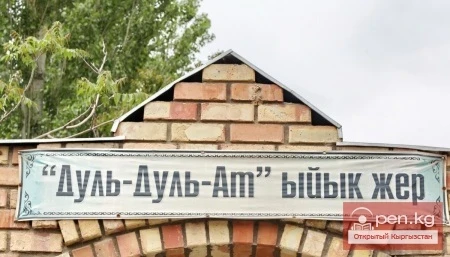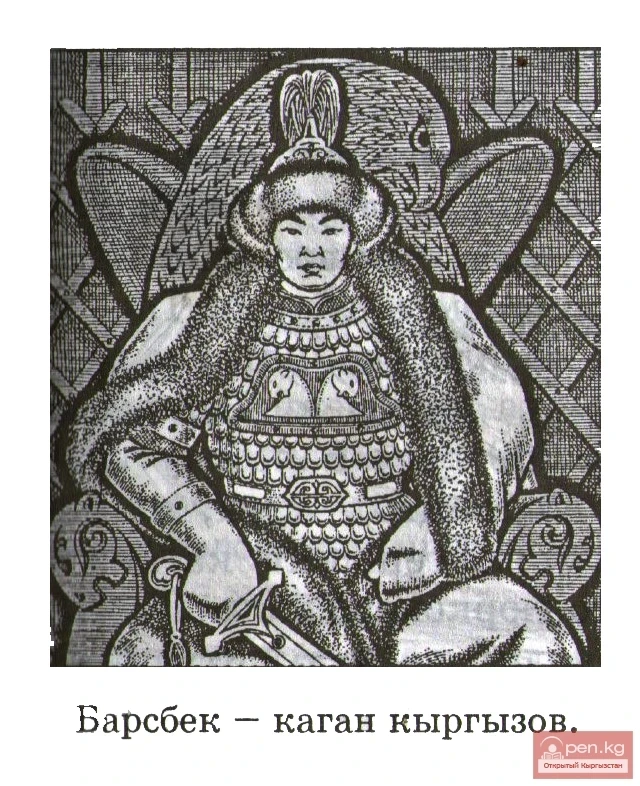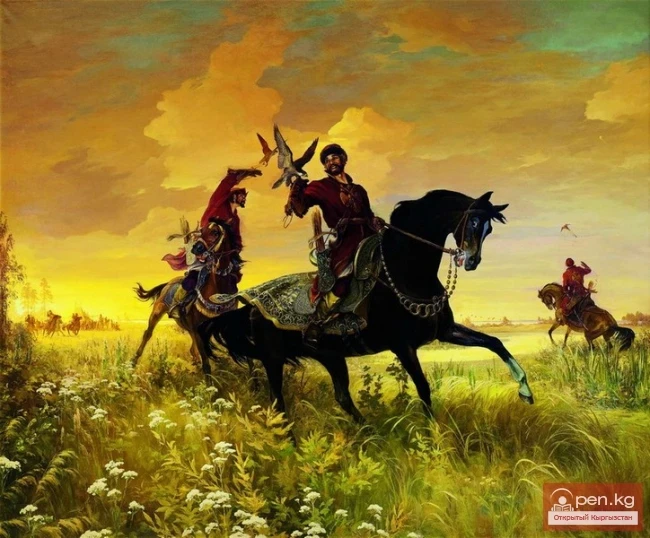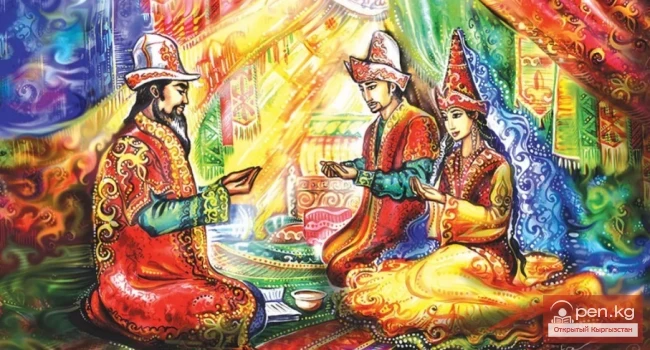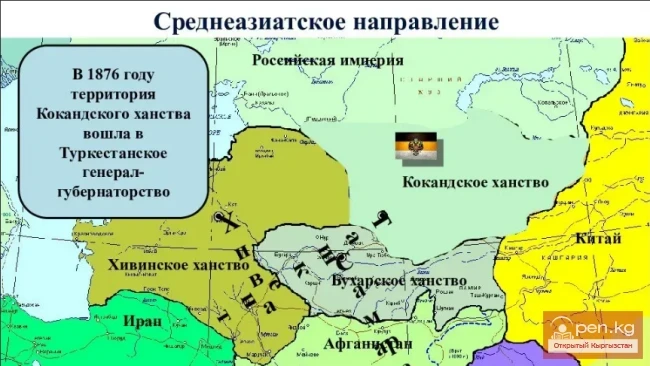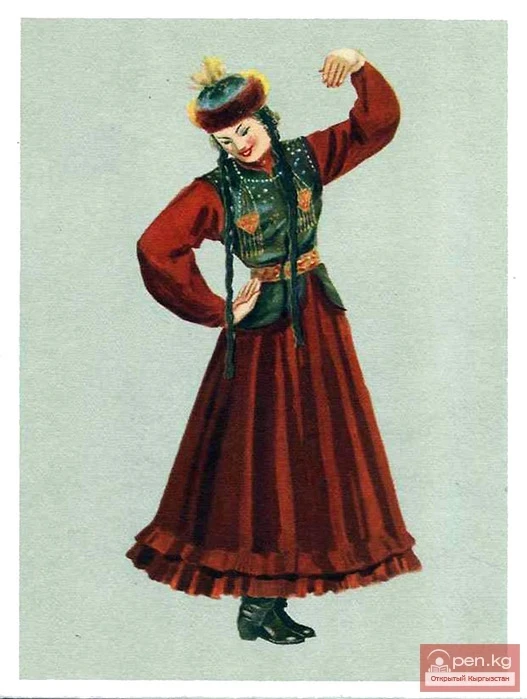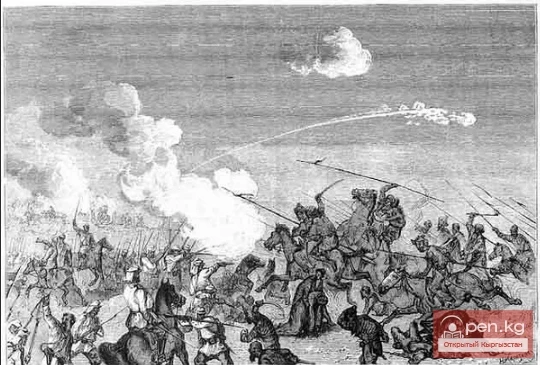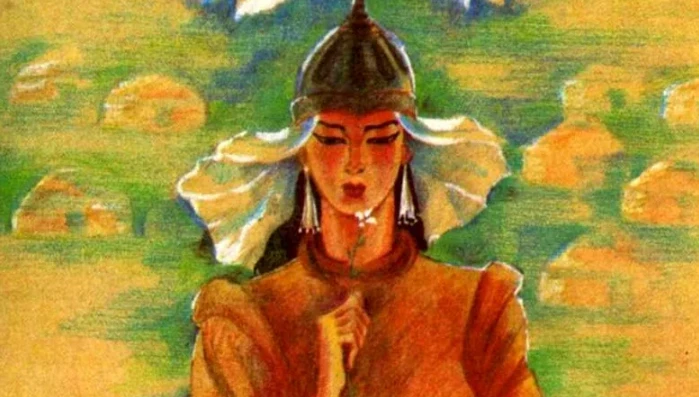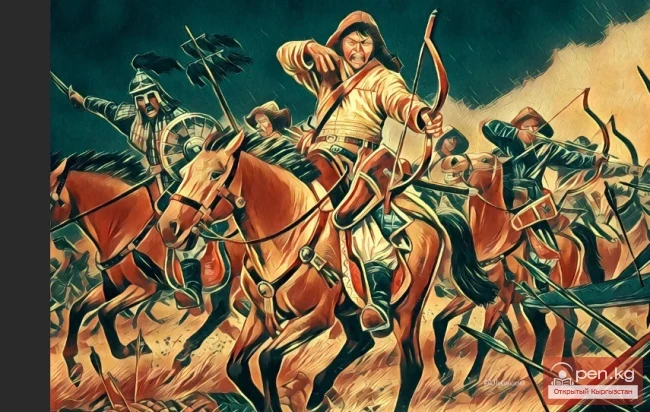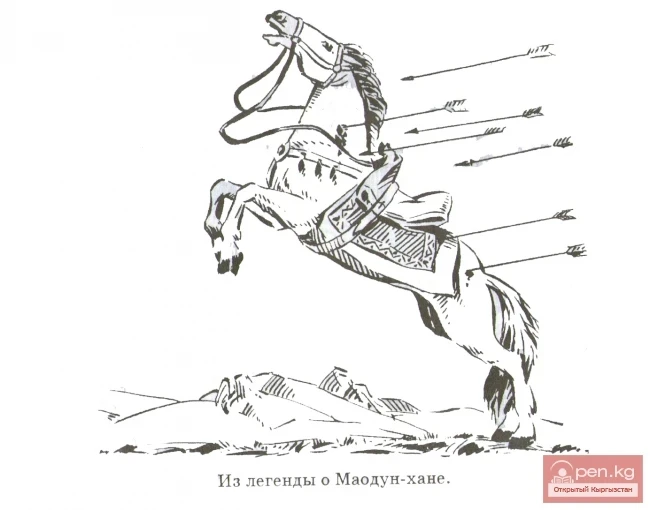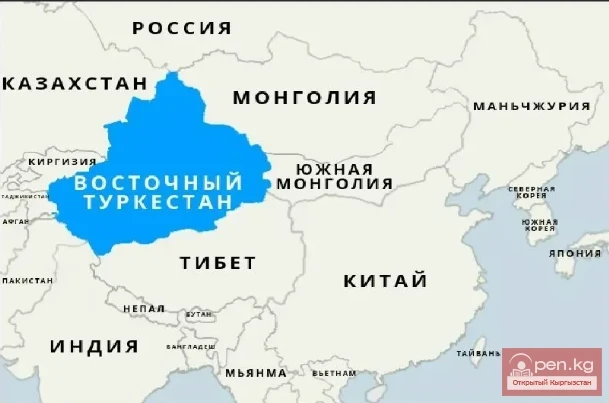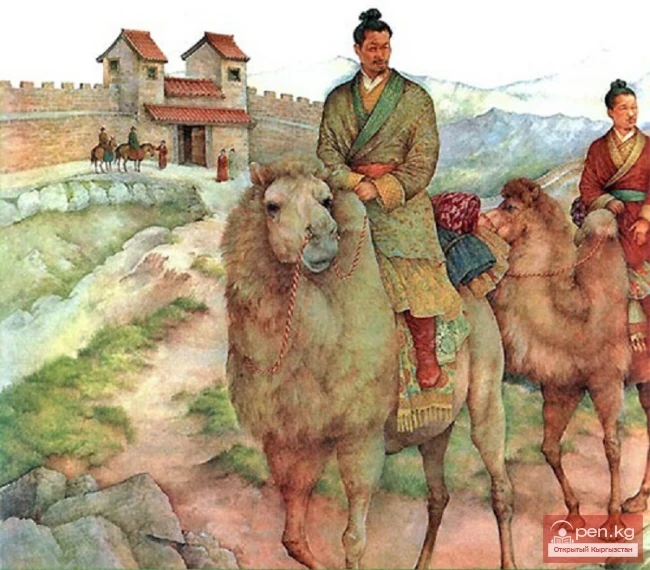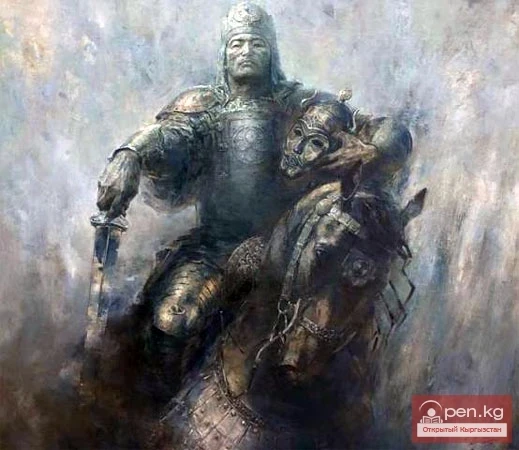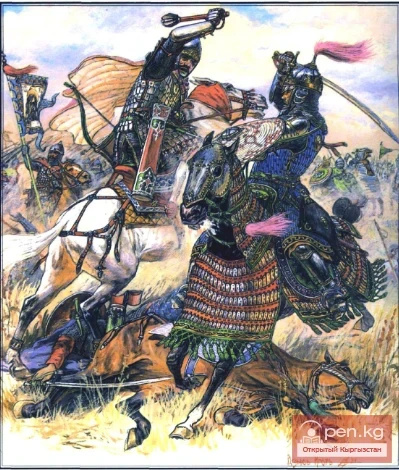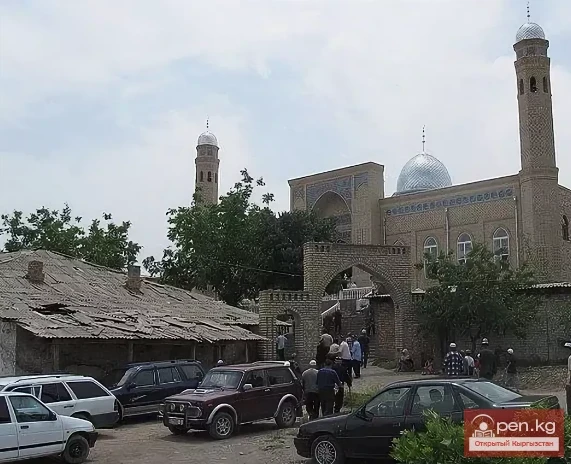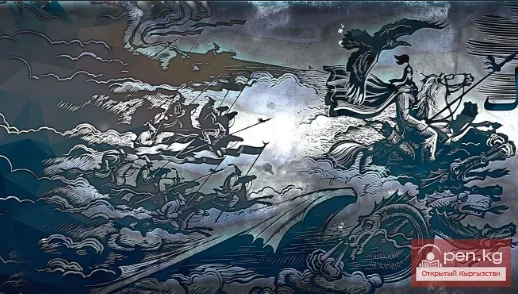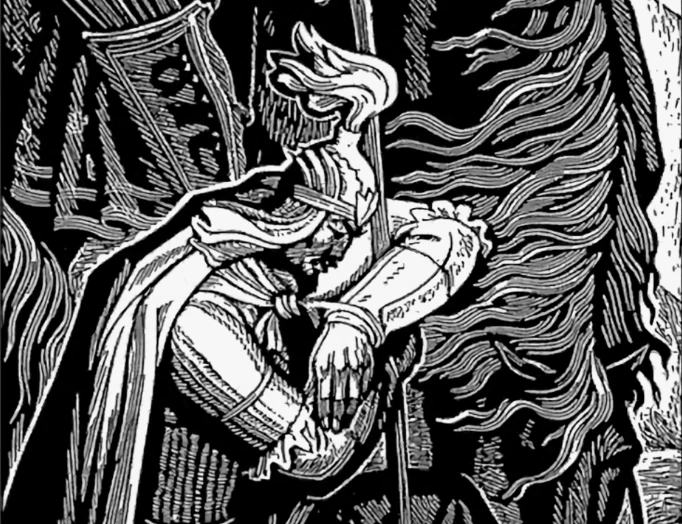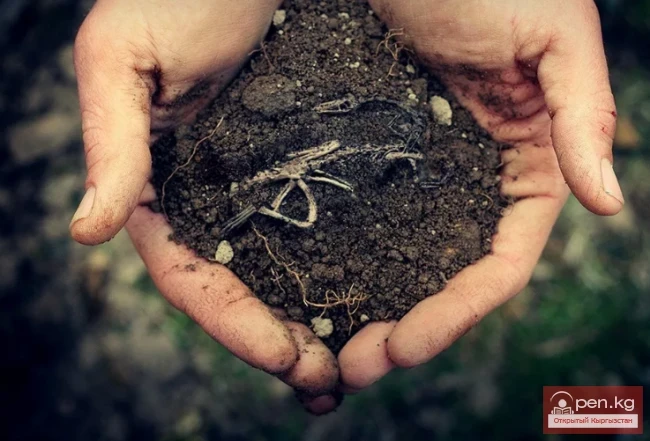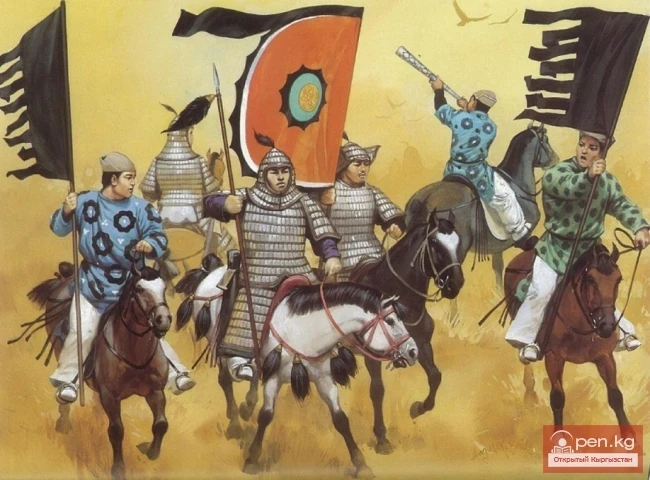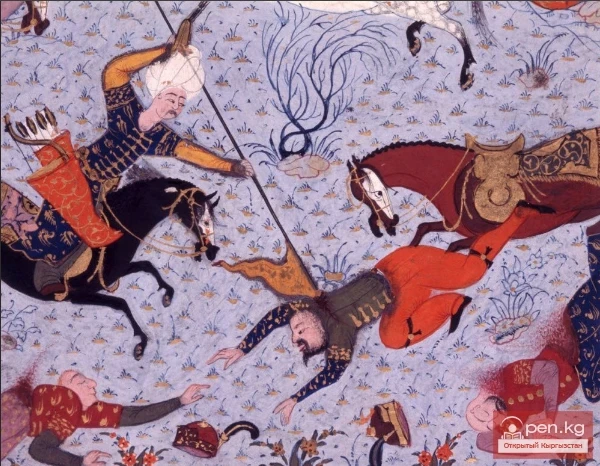
Unyielding Ferganans
In 105 BC, a Han embassy led by the official Chelin passed through the capital of the Xiongnu. This was the same one who advised the emperor to marry off the Lotus Flower. The angry princess did not even come out to greet her compatriots.
Chelin was heading to Dayan to buy "heavenly" horses.
That's where it all began.
The Dayan ruler Mugua initially responded favorably to the ambassador's request. But then his advisors— the wealthiest and most noble people of the state—rose up in opposition.
— We will not sell! — they decided. — Our horses are priceless, and the ambassador wants to pay only with silks.
— Han is a powerful state, — Mugua remarked.
— The Han are far away, — the advisors countered. — What can they do to us?
Mugua could do nothing with them—after all, the horse herds belonged to them. And the ambassador was refused.
Chelin did not possess the diplomatic tact of Zhang Qian. In irritation, he uttered insults and even, as he was leaving, pushed the statue of the Golden Horse—a religious relic of the Dayans that stood in the throne room—as a sign of contempt.
This was already a direct insult.
According to the laws of hospitality, the ambassador was sent off safe and sound to the very border. And only there was he killed, with his property taken to compensate for moral damage.
THE FIRST CAMPAIGN
Upon learning of this, Emperor Wu-di sent a six-thousand-strong detachment to Dayan, led by the famous general Li Guangli.
The army followed the same route that Zhang Qian had paved. But now the inhabitants of the cities of Eastern Turkestan met the invaders fully armed. To obtain provisions, it was necessary to storm these cities. The losses were significant. And when the remnants of the Han troops reached the borders of Dayan, the experienced Li Guangli realized—he needed to turn back. This was a disgrace for the great empire. A collapse... Who will fear the Han if Dayan does not?
The mighty Son of Heaven could not tolerate defeat.
He mobilized all the forces of the empire. This time, Li Guangli received 60,000 soldiers. A huge convoy of 100,000 oxen, 30,000 horses, and 100,000 donkeys, mules, and camels accompanied the valiant army. For the safety of passage to the Dayan borders, another 18,000 people were allocated.
In the army, there were even special masters to divert water from the enemy capital Ershi (the city of Ershi—Ureshta—was located near modern Osh in southern Kyrgyzstan).
THE SECOND CAMPAIGN
An immense force marched on ancient Fergana. Moreover! The Chinese general demanded that the Xiongnu, according to the treaty, raise an allied army. After all, he knew that the Kunbag could saddle 188,000 warriors. Kunbag agreed. And he sent 2,000 men. ...Through mountain paths and roundabout ways, a small caravan made its way to Chigu—two dozen horsemen and a dozen camels with bundles. It turned out to be the ambassadors of the Dayan king Mugua with rich gifts. They said:
— O great Kunbag! For many years we have lived in friendship. We bought rams from you, and you bought wheat, barley, and various fruits from us. Everyone was well off. Why are you coming against us? How have we offended you? Kunbag Lejzaomi replied:
— Our friendship has been broken. I am the son-in-law of the emperor. I sent only two thousand. But I could have sent sixty times more. Yet even this has been ordered not to engage in battle with you.
— But you still sent!
— For appearance's sake, the Han commander demanded. By virtue of the treaty. I cannot violate the treaty. But I tell you: not a single arrow will fly in your direction, not a single sword will spill your blood. And in case, after all, in war, anything can happen, these 2,000 may become your last support...
Dayan in Flames
The ambassadors left satisfied. Meanwhile, Li Guangli entered Dayan. The towns and estates were engulfed in flames. Corpses floated in the canals.
In response, the entire country rose up. Many fled to Ershi—the capital. And when the Han army approached it, they were already prepared to meet them. Moreover, Mugua sent for help to his ally, the ruler of the state of Kanpo (Ancient Khorezm). They were expecting assistance any day.
Li Guangli began a proper siege. Specialists diverted water from Ershi. Then, during forty days of fighting, the outer defensive wall was destroyed.
Brave Mugua ordered a retreat to the inner city; he decided to fight to the end. And the common people supported him.
The "best" people of Dayan, i.e., the large landowners and wealthy merchants, were initially filled with martial patriotism. But when Li Guangli's army trampled their fields and looted their clay fortresses, the mood of the "first" people changed sharply. They no longer admired the courage of the king and the heroism of the people.
— What do the poor have to lose? They have no property except their lives. That's why they fight, fools. Wisdom says: do not fight the strong, do not litigate with the rich...
— And our king is in league with them.
— Because of his stubbornness and the malice of the rootless ragamuffins, we are losing everything: gardens, vineyards, fields, and all that was acquired by our fathers...
— Let the king pay with his head for our losses! Around the noble Mugua, a web of black treachery was woven.
As it appears from the Chinese chronicle "Houhanshu," all the elders somehow suddenly fell into captivity. Or perhaps they simply defected to the enemy to negotiate peace?
And they agreed: King Mugua was treacherously murdered, and his head was sent to the Chinese general.
Peace was concluded. Li Guangli received several dozen "heavenly" horses (tian-ma) and 3,000 stallions and mares of lower quality. Taking these hard-won trophies, a third of the Han army (all that remained of it) set off on the return journey.
The Xiongnu also returned home—in full force, having never drawn their weapons.
Such were the results of the war. Of course, the famous horses were not the true reason for it. The Han government sought complete control over the Silk Road. And it achieved this goal.
Secrets of Lake Issyk-Kul
